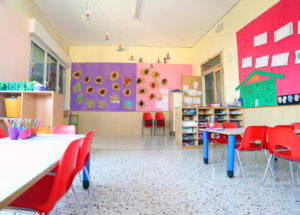 It can be all too easy to overlook the benefits gained from enrolling your child in preschool. Many parents see preschool as nothing more than structured playtime for a few hours of the day. In fact, the number of 5-year-old children enrolled in preprimary programs dropped by 5% between 1989 and 2013 (from 89% to 84%), according to the National Center for Education Statistics. Nevertheless, enrolling a child in preschool can make a great difference in both their home life and their grade school readiness. Here is a list of ten extraordinary benefits your child can gain from attending preschool.
It can be all too easy to overlook the benefits gained from enrolling your child in preschool. Many parents see preschool as nothing more than structured playtime for a few hours of the day. In fact, the number of 5-year-old children enrolled in preprimary programs dropped by 5% between 1989 and 2013 (from 89% to 84%), according to the National Center for Education Statistics. Nevertheless, enrolling a child in preschool can make a great difference in both their home life and their grade school readiness. Here is a list of ten extraordinary benefits your child can gain from attending preschool.
- Motor Skills: In preschool, a lot of physical activity happens throughout the day to keep your child entertained. This allows them to fully explore and develop their balance, hand-eye coordination and overall general motor skills
- Prepare for Math and Reading: Curiosity in children is commonplace. They want to learn, and academic preschool activities gives them a chance to do that. From learning numbers, letters, and sounds to all sorts of fun educational games, preschool offers a child the chance to begin learning about math and reading in a fun environment.
- Desire to Learn: In addition to teaching your child a solid base foundation for math and reading, academic preschool programs also foster your child’s natural curious nature. This allows them to want to learn more and encourages knowledge and discovery.
- Language Skills: Through preschool education activities and simply being in an environment where language is everywhere, this can exponentially improve your child’s own speaking ability. They will learn new words and learn to form longer sentences.
- Learning to Care For Each Other: Bit by bit, children in preschool learn to care for both themselves and others. Teachers show them how to be responsible, increasing their sense of self-worth, and show them how to help others, increasing their compassion.
- Choice: Though it may only be small choices, a child in preschool will learn how to make decisions for themselves. They can choose if they want to play a game their friends are playing and how to ask for help from the teacher when they need it. These tiny choices now will grow into much more responsible decisions later in life.
- Structure: The classroom provides a lot of structure and scheduling to a child. This helps encourage a child on how to think and act in an organized manner and how to follow simple rules.
- Social Interaction: The sooner a child can interact with a child their age, the better. They will learn how to communicate and voice their feelings in a calm and easy way, while being shown how to build strong friendships with others.
- Kindergarten: One of the most obvious benefits preschool provides is it allows a smooth transition into kindergarten for the child. It gives them grade school readiness and ensures that they already have a foundation for learning. Grade school readiness is crucial to foster a child’s growing, thinking brain.
- Growth: Far beyond that of just grade school readiness, a child will have the opportunity in preschool to grow in many ways. It promotes healthy development and helps a child learn skills they need in order to be prepared for school and life.
Every parent wants to make sure their child grows up health and happy. Enrolling them in preschool is just one of the many priceless things you can do in order to make that happen.
For more information on grade school readiness, or if you’re looking for a preschool in New Jersey, please visit Learn and Grow Academy’s website at www.learnandgrowacademy.com.



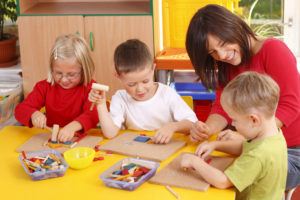 When parents seek out daycare alternatives, the benefits of academic preschool tend to win over families who want their children to develop both intellectually and socially. In fact, the number of three- to five-year-olds enrolled in preprimary programs like nursery school and preschool increased from 59% to 65% from 1990 to 2013. That means that the majority of parents understand that preschool education activities are highly advantageous for their children in terms of how they grow and learn.
When parents seek out daycare alternatives, the benefits of academic preschool tend to win over families who want their children to develop both intellectually and socially. In fact, the number of three- to five-year-olds enrolled in preprimary programs like nursery school and preschool increased from 59% to 65% from 1990 to 2013. That means that the majority of parents understand that preschool education activities are highly advantageous for their children in terms of how they grow and learn. When it comes to choosing a childcare provider for your family, you’ll undoubtedly have several options to choose from. While around three-fourths of young children in the U.S. participate in a preschool program, other working parents rely on family members or
When it comes to choosing a childcare provider for your family, you’ll undoubtedly have several options to choose from. While around three-fourths of young children in the U.S. participate in a preschool program, other working parents rely on family members or  Children go to school to learn new things, but their education shouldn’t stop there. Even in your child’s day-to-day life, it is important to remind them about the lessons that they’ve learned.
Children go to school to learn new things, but their education shouldn’t stop there. Even in your child’s day-to-day life, it is important to remind them about the lessons that they’ve learned.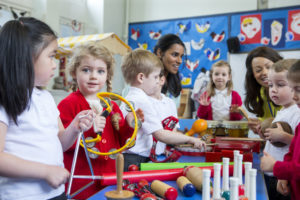 Young children are like sponges — they soak up information. This is why it’s important to enroll them in academic preschool programs so they can obtain a quality education from a young age.
Young children are like sponges — they soak up information. This is why it’s important to enroll them in academic preschool programs so they can obtain a quality education from a young age. Parent-teacher meetings are designed to facilitate open communication between two of the adults who spend the most time with your child every day. You both care very deeply about the development of your child, but if you’re not on the same page, it’s hard to manage and support that growth, which is so important during these early years. Here are 10 questions to ask your preschooler’s teacher at your next parent-teacher meeting.
Parent-teacher meetings are designed to facilitate open communication between two of the adults who spend the most time with your child every day. You both care very deeply about the development of your child, but if you’re not on the same page, it’s hard to manage and support that growth, which is so important during these early years. Here are 10 questions to ask your preschooler’s teacher at your next parent-teacher meeting. Your child may have passed all the requirements for preschool, but have you? Your little one is ready to go out into the world, make new friends, learn new things, but is your own separation anxiety making this transition extra hard?
Your child may have passed all the requirements for preschool, but have you? Your little one is ready to go out into the world, make new friends, learn new things, but is your own separation anxiety making this transition extra hard?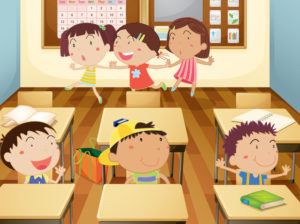 If your child is among the three-fourths of kids in the U.S. who participate in a preschool program, you’ve probably been lectured about a variety of back to school tips. One of the most fundamental tips that can’t be overlooked, however, is the importance of helping your child get a good night’s sleep. A lack of sleep can be detrimental to a child’s ability to learn and grow, particularly when it comes time to engage in all those fun academic preschool activities.
If your child is among the three-fourths of kids in the U.S. who participate in a preschool program, you’ve probably been lectured about a variety of back to school tips. One of the most fundamental tips that can’t be overlooked, however, is the importance of helping your child get a good night’s sleep. A lack of sleep can be detrimental to a child’s ability to learn and grow, particularly when it comes time to engage in all those fun academic preschool activities.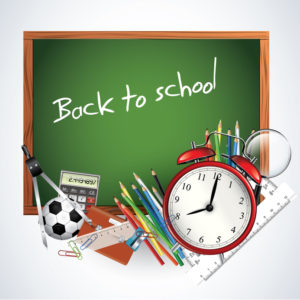 It’s that time of year again! You’ve had a lot of fun hanging with your little ones this summer, but pretty soon they will be back to school with their best friends and favorite teachers.
It’s that time of year again! You’ve had a lot of fun hanging with your little ones this summer, but pretty soon they will be back to school with their best friends and favorite teachers.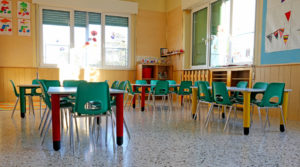 By now you may have heard about the many benefits of enrolling your youngster in an academic preprimary program. Preprimary programs are organized to provide educational experiences for children. They include kindergarten, preschool, and nursery school programs that focus on grade school readiness and overall growth and development during the earliest years of a child’s life.
By now you may have heard about the many benefits of enrolling your youngster in an academic preprimary program. Preprimary programs are organized to provide educational experiences for children. They include kindergarten, preschool, and nursery school programs that focus on grade school readiness and overall growth and development during the earliest years of a child’s life.